All three opposition parties have come together with proposals for a loneliness taskforce to help hundreds of thousands of Scots.
Following a high-profile Scottish Parliament conference hosted by The Sunday Post and Age Scotland last week, MSPs will now form a cross-party group to look at how best to tackle a problem which affects hundreds of thousands of Scots.
Our Scotland’s Big Braw Community campaign aims to dramatically cut loneliness and isolation in older people by 2030.
Backing the campaign were politicians from all three parties, including Scottish Conservative’s Justice Minister Miles Briggs, Labour deputy leader Dame Jackie Baillie and Liberal Democrat leader Alex Cole-Hamilton.
Big Braw Community

Dr Jane Morris, the chair of the Royal College of Psychiatrists in Scotland also embraced the campaign, describing loneliness as a “distressing cruelty” and a “danger to health and wellbeing”.
She said: “This is an issue that we should all be concerned about because it affects all of us. I was horrified to learn that over 200,000 older Scots can go two weeks or more without speaking to another person.
“You only need to see a newborn baby reaching out for human connection to understand how important that is.”
Campaign for positive change
She warned loneliness increases the risk of dementia by 50%, and the risk of heart problems or stroke by 30%. She added being a part of Scotland’s Big Braw Community was a “wonderful opportunity” and an “exciting campaign for positive change.”
Briggs, speaking at the official Big Braw Community campaign launch in Holyrood this week, said: “The World Health Organisation properly describes loneliness as a silent killer. If we do nothing about it before it becomes a crisis in Scotland, we will lose the chance to get ahead of this scourge which leaves our most vulnerable at a hugely increased risk of dementia, heart attacks and strokes as well as depression and isolation.”
He is calling on government minsters and politicians from all parties to join with experts and organisations across the country to appoint a Loneliness Taskforce, planting the seeds for the campaign to eventually expand to embrace both young and old in towns, cities and rural communities.
Also calling for a taskforce is Scottish Labour deputy leader Baillie who said: “A Loneliness Taskforce would be the way forward for this important campaign as this is an issue which affects every single family in Scotland. I would be more than happy to be a part of the taskforce, as I am particularly concerned about getting support from a government which does not have a good history of funding preventative work.
“They are far more likely to wait until situations reach crisis point, and that is unacceptable. It is heartening to see so much good work being done out there by local authorities and organisations who are all facing eye-watering financial cuts, and a taskforce would get the message across to the government.”
She said the challenges MSPs now face will be persuading the government to release funds to prevent the crisis developing.
She said: “This is an extremely positive campaign and I am very conscious that local authorities, the voluntary sector and community groups are under real and significant pressure. Getting some of that money out of the door to fund prevention is what we need to be doing here, and that is the challenge we are going to face cross-party.”
Scottish Conservative leader Douglas Ross said: “I’m delighted to lend my support to The Sunday Post’s brilliant campaign to tackle what is a very serious and growing problem. Establishing a loneliness taskforce is a superb idea that I hope will have the backing of politicians from all parties.”
Scottish Liberal Democrat leader Alex Cole-Hamilton said: “A loneliness taskforce could be an extremely effective way of getting ministers to take action here.
“We need to recognise that loneliness has far-reaching and potentially devastating consequences, particularly for older people, and those range from social isolation to an increased risk of illnesses like dementia.”
Big Braw Community: Holyrood summit shines spotlight on issue that blights lives
Health Minister Michael Matheson had resigned just a few hours before. But, in Holyrood’s Committee room number two, MSPs from every major party, frontline care organisations, Police Scotland and concerned celebrities met to discuss a problem that is often hidden, but blights the lives of hundreds of thousands of Scots – loneliness.
Scottish Labour Deputy Leader Dame Jackie Baillie and Scottish Conservative Leader Douglas Ross, along with more than two dozen other MSPs, listened to the campaigners and experts, and both stressed the importance of avoiding loneliness.
The event – set up by Age Scotland and The Sunday Post – began with a film of our interview with former Cartoon Cavalcade presenter Glen Michael. Widower Michael, 97, spoke about the dangers of loneliness, and why maintaining contact with others every day is so vital.
Georgia Argus, from Edinburgh-based organisation Vintage Vibes, said: “We have helped forge friendships between generations which have lasted for years. One I’m thinking about has an age difference of 50 years, but they both absolutely love gaming. Trying to change the mindsets of employers to involve volunteering and flexible working as part of the working day would help.”
Sunday Post editor David Lord said the paper is determined to work with organisations across the country to not only highlight and support what they do, but to also bring them together to campaign for lasting change.
He said: “We have been overwhelmed by the response from our readers on the issue of loneliness and isolation with the articles we have already done, so we know this is a subject which is incredibly important to all of us.
“Loneliness is something which affects hundreds and thousands of people across Scotland, and its impact on health and wellbeing can be devastating with statistics showing it can increase the risk of dementia by 50% as well as increase the risk of strokes or heart issues by almost a third.”
Police Scotland’s Detective Chief Inspector Stevie Trim told how scammers are targeting the lonely and vulnerable, and how his teams worked together with banks to prevent over £32 million of fraud. He said: “We deal with over a hundred incidents a month involving vulnerable and lonely people.
“As well as having to deal with the devastating effects of losing all their money, it also ends up making them even more lonely vulnerable and afraid to answer their phone.”
BAFTA-winning actor Gary Hollywood of Mrs Brown’s Boys and Jane McCarry from Still Game will take part in a series of short films to lift the stigma of loneliness and show how to thwart scammers who target the elderly.
Gary said: “Every single family in Scotland has someone who is older and vulnerable, including us. That’s why we want to get these vital messages across and make a difference.”
Jane McCarry said: “In Still Game, everyone laughed at Isa Drennan because she was Craiglang’s resident gossip. But the sad truth about Isa was that she was lonely and that was why she was so nosey, so this campaign has huge resonance for me in many ways.”
‘We need strong leadership, focus, big actions and investment’

By Adam Stachura, Age Scotland Policy Director
I think Scotland is getting lonelier. People of all ages, stages and backgrounds are reporting this sense of feeling in increasing numbers and the impact it has on their lives can be absolutely devastating.
Chronic loneliness affects one in 10 people in Scotland. We’ve got to cut this right down.
This isn’t just a consequence of the pandemic, although that has certainly had an impact on how our society, economy and services have changed in a way which disconnects people from one another and makes it harder to establish new and meaningful relationships. The extraordinary pressure on household finances has also had a measurable effect on loneliness as more than four in 10 over 50s in Scotland have been cutting back on socialising due to unmanageable costs, and older people on the lowest incomes are twice as likely to be lonely all or most of the time than the average.
Tackling loneliness in Scotland and cutting the number of people suffering from it must be much higher on the radar.
It’s going to take strong leadership, focus, big actions and investment from government, our institutions, business, communities and individuals. The good news is that there is so much great work happening across the country.
Scotland’s Big Braw Community is such a fantastic campaign to reignite the political and social will to tackle this scourge.
Ultimately, the aim is to cut levels of chronic loneliness in Scotland in half by 2030. This will be towards the end of the next Scottish Parliament session and heading into an election year which could really focus the minds of our political leaders.
The campaign will raise awareness of loneliness and the devastating impact it has on lives, help address the stigma people face, showcase the wonderful work that communities, groups and individuals are doing to connect people, create new opportunities for people to have meaningful connections, press for greater investment to scale up what works well, and demand smarter policy making which looks at how decisions will affect loneliness.
There is also a huge opportunity for business to get involved.
Hopefully, it will inspire people to take their own, regular actions too. Everyday heroes who embody Scotland’s reputation for friendship, reaching out to those in their own lives or neighbourhoods who may be alone and don’t know where to turn, or by volunteering with groups and organisations committed to tackling loneliness.

Enjoy the convenience of having The Sunday Post delivered as a digital ePaper straight to your smartphone, tablet or computer.
Subscribe for only £5.49 a month and enjoy all the benefits of the printed paper as a digital replica.
Subscribe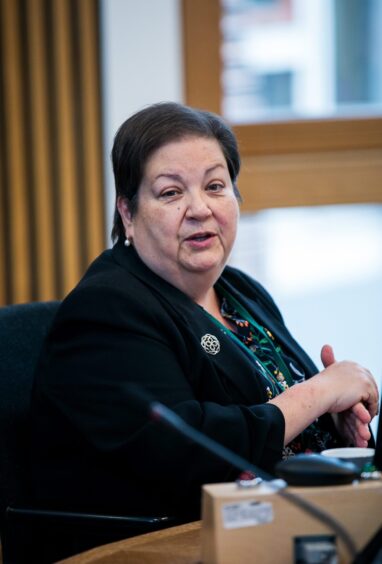 © Andrew Cawley
© Andrew Cawley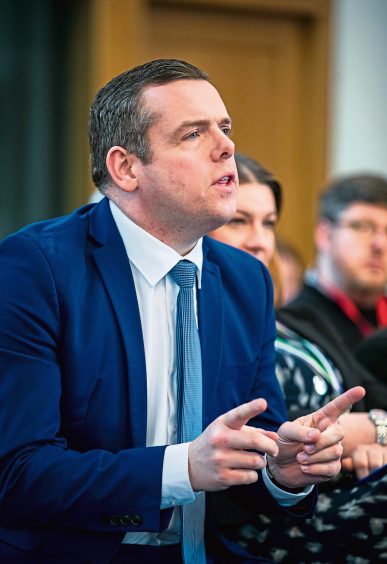 © Andrew Cawley
© Andrew Cawley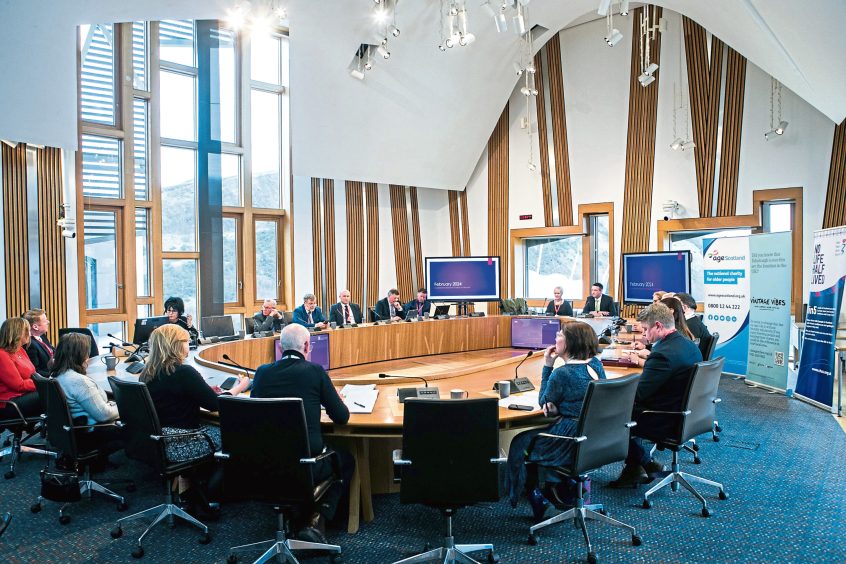 © Andrew Cawley
© Andrew Cawley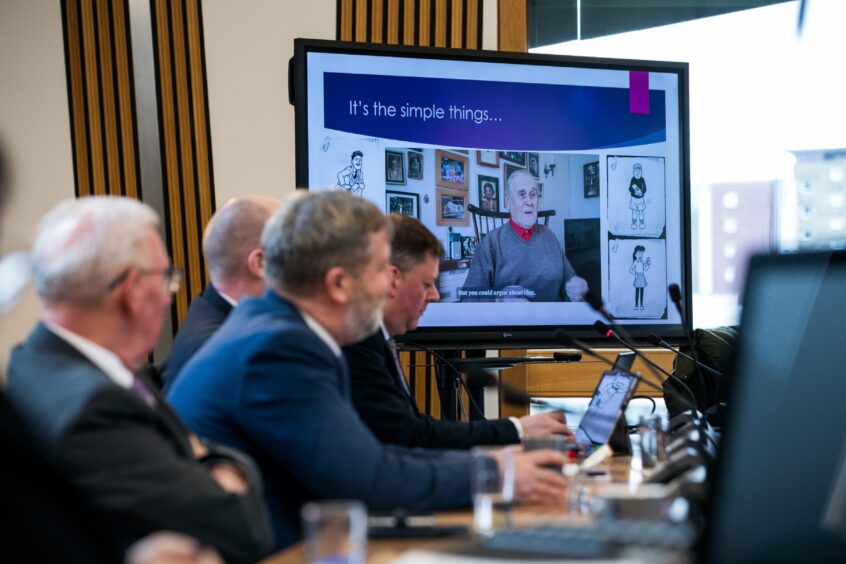 © Andrew Cawley
© Andrew Cawley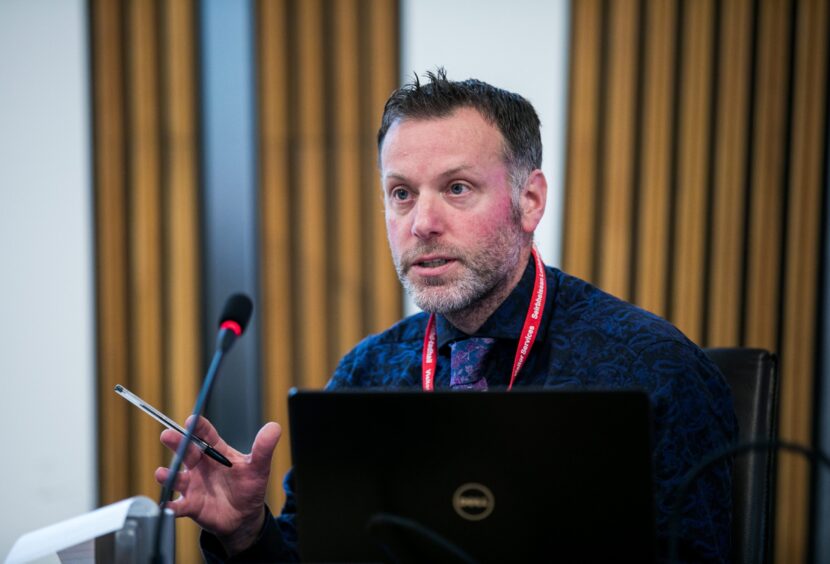 © Andrew Cawley
© Andrew Cawley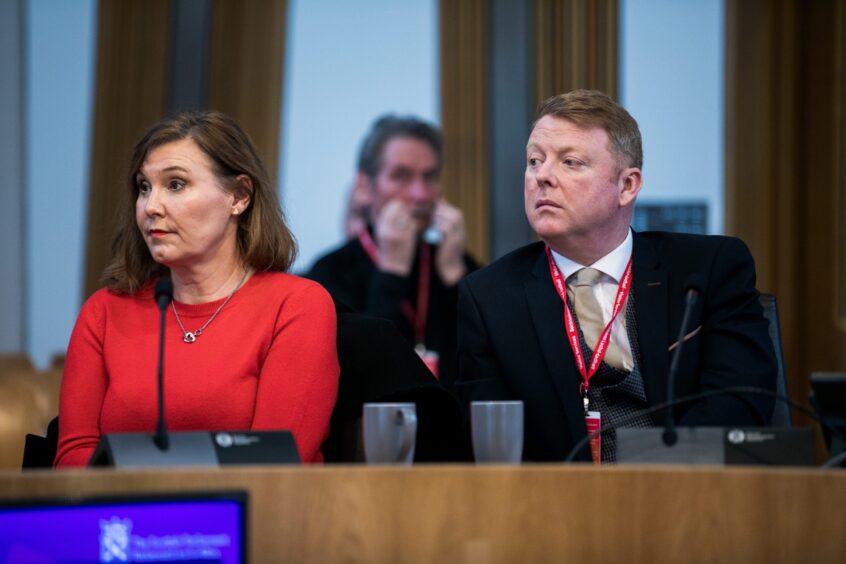 © Andrew Cawley
© Andrew Cawley